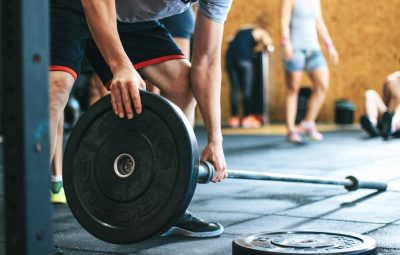As with any new, or newly popular, diet, it has become common for people to question whether the Paleo Diet is safe. The Paleo diet is, of course, a way of eating based on the diet of Paleolithic Man, the hunter gatherer, or caveman. So what is the answer? Are we right to question it, and is the Paleo Diet safe or is it just another potentially dangerous fad?
Low carbohydrate diets
The first possible objection to the Paleo way of eating is based largely on a misconception, the idea that it is a low carb diet. The Paleo Diet certainly shares some similarities with the well know, and perhaps infamous, Atkins Diet. Like Atkins, Paleo suggests high fat and protein intake and includes far less carbohydrates than we are generally used to eating.
Unlike the Atkins diet, however, the Paleo Diet does not seek to restrict carbohydrate intake, and it is that extreme restriction that can case problems and, potentially, be dangerous. If you deliberately, and greatly, restrict your carbohydrate intake in order to remain in ketosis, the major aim of the Atkins diet and its process of weightloss, then you really do need to be careful. This method, if attempted at all, is probably best supervised by a medical professional, it can certainly produce some side effects that are unpleasant. This is not to say that it’s not effective, for it does seem to get results, but there’s really nothing to suggest that this is how we are naturally meant to eat.
So, rather than being deliberately low in carbohydrates, the Paleo Diet just tends to be so because it removes grains, sugars and potatoes, the major sources of carbohydrate in most people’s diets. When you take those staple foods out of the equation, most people who try the paleo diet find themselves looking for ways to get more carbohydrates, not restrict their intake. But is the paleo diet safe in terms of this lower carbohydrate intake? Yes, because it is a diet based on a balance of nutritionally rich foods, not on the idea of restriction.
High fat diets
The other major objection to the Paleo Diet, on medical grounds, is the encouragement to eat lots of protein and fats. The concern, of course, is the increase in cholesterol and the idea that eating all that fat is going to cause you to gain weight. This is, however, NOT TRUE. The capitalisation is entirely justified as this is such a major, and yet common, mistake! There is research, and plenty of it, though far beyond the scope of this article, to show that it is not eating fats that causes you to gain weight but carbohydrates. Refined sugars and grains, wheat in particular, are the worst offenders here.
As ever, it’s best to do your own research, but you won’t need to look far to find plenty of evidence that eating fat and protein, and plenty of it, is a good thing; it’s certainly not the reason that people put on weight. This shouldn’t be taken as carte blanche on fatty foods – they’re not ALL good, but the ones that are may come of something of a surprise. Again, it’s beyond the scope of this article, but let’s just say: butter, eggs and fats from pastured, grass fed animals is all very good for you. But beware those vegetable oils – if you have to do any more than squeeze something to get the oil out of it, be suspicious! So, olive oil is good – corn, palm and soy oils are not. The Wikipedia pages for those oils make for some interesting reading – you might want to learn more before putting any more of those in your body!







